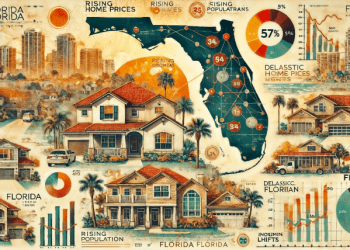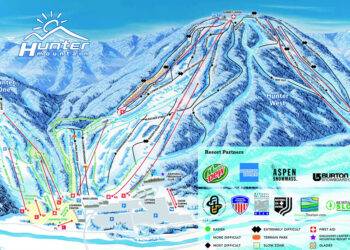Conquering the Everest Base Camp is still a dream for many adventure trekkers.
Nestled at the foothills of the world’s highest mountains, Mount Everest (8,848m/ 29,035ft), and other skies-piercing mountains made this trail one of the best destinations throughout the world.
As the trip begins after the touchdown at Lukla airport then you will pass through numerous unique Sherpa villages of the Khumbu region.
The EBC trek is arguably the most popular trekking destination, a dreamlike experience with challenging landscapes that will surely reward you with the best mountain views, once you start hiking through the trails.
Budgeting Overview in the EBC Trek
There are many accommodations stops you will be sheltering on before embarking on the Everest Base Camp.
Budgeting is one of the significant factors of any trek. You will need to thoroughly break down the expenses to ensure you can afford available services and enjoy your trek hassle-free high in the mountain region.
As the altitude keeps rising, the price also rises and vice versa.
So, a common question arises, what’s the overall cost of a trek?
If you are a Western resident, you will not find the cost ridiculously expensive. Why? Because the standard currency value of Nepal is comparatively lower than that of the West, so making it affordable to some extent.
However, for local South Asian tourists, the Everest Base Camp Trek might be considerably expensive.
Where your money is most spent during the EBC trek? What amount is enough for the trek? Should you carry all cash or ATM? Read on as we answer your queries!
Whether you are in peak season, seasoned, or first-time trekker wandering in EBC trek.
Here is a comprehensive guide that helps you to make informed decisions beforehand along with a broad understanding of the budgets involved
Now, let’s dive into the cost specifics.
Types of Packages on Everest Base Camp Trek
The EBC trip is 12-14 days trek, excluding the airfare from Kathmandu to Lukla and vice versa. The other budgets can be broken down into gears, company and guide services, accommodation, meals, permits, etc.
In peak season, the destinations are overflowed at all stops, and all the accommodation houses are packed with trekkers. So, it’s essential to purchase a package beforehand.
You need to trek continuously for numerous days to reach the base camp. For **
Simple Package
The journey to EBC is the same, what differentiates the experience is the package you choose, the food you consume, and the place you are accommodated in.
Be mindful of the trekking experience and enjoy a trip most fully, even though the accommodation and meals are simple.
In this package, you are provided with essential accessories, professional guides, porters, gears, and kit you need before embarking on a journey. In 12-14 days, you will hike an overall 80-mile (130km) round trip from Lukla to Everest Base Camp and vice-versa.
The standard package will cost you around $1000 to $2000.
Deluxe Package
The accommodation and meals will be more satisfactory and luxurious in this package. The trek is facilitated with higher priorities like comforts, safety, and services that meet trekkers’ satisfaction.
Mostly, all facilities are upgraded versions of a normal package with the inclusion of a helicopter flight. You will return from Kala Pathhar- the best sunrise spot in Nepal, via heli ride. Therefore, your journey will take 12-14 days but you will only cover 40 miles (65km).
The deluxe package will cost you around $2500 to $3500.
Luxury Package
If you want to enjoy your EBC trek with the most comfortable facilities, top-notch services, and premium experiences, luxury packages are tailored for you.
Mostly these packages are tailored in such a way that you will be facilitated with top-grade accommodations, utmost comforts, attached bathrooms, gourmet meals, customized services, and helicopter rides.
The luxury package will cost you around $4000 to $5000.
Best Trekking Options in the Everest Base Camp Trek
Solo-trekking (FIT)
Solo travel in mountainous regions is both thrilling and risky, offering a unique opportunity for personal growth and deep connection with the surroundings. It’s a chance to escape the usual travel itineraries and savor quality time alone in nature’s vast landscapes.
One major advantage of solo trekking is the freedom to create a personalized itinerary. Unlike packaged tours, you have full control over your schedule, allowing you to choose accommodations, services, and even extra days for acclimatization. This flexibility ensures that you can adjust your pace, enjoy spontaneous stops, and truly immerse yourself in the experience.
Trekking without hiring guides and porters can also be more budget-friendly. The Everest Base Camp (EBC) trek, for example, is typically a two-week journey, and guides or porters charge daily fees that add up quickly. By going solo, you can significantly reduce expenses and allocate your budget toward other aspects of the trip.
However, there are also challenges to consider. During peak trekking seasons, accommodation can be scarce as teahouses and lodges fill up quickly. It’s essential to be prepared for uncertain circumstances, such as limited options or having to stay in less-than-ideal conditions. Even if you find lodging, solo travelers often face higher rates than groups and seldom receive discounts on food or amenities. For those trekking solo, careful planning is crucial to manage both the unpredictability and extra expenses.
Group-Trekking (GIT)
Group trekking brings a unique blend of shared experiences and engagement with like-minded individuals, making the journey more vibrant and social.
One of the main benefits of group trekking is cost-sharing. With a larger group, expenses for accommodations, meals, guide, and porter services are divided among members, making the trip more budget-friendly.
Additionally, purchasing group packages often includes discounts, adding further savings.
Traveling with a group also provides a strong sense of social support and motivation. Sharing the same accommodations, trails, and destination goals creates a bond among group members.
Encouragement from fellow trekkers can be invaluable on challenging sections of the Everest Base Camp (EBC) trek, helping everyone stay motivated and focused.
However, group travel also has its limitations. There’s less flexibility in terms of schedule and activities, as each member must adhere to the group’s itinerary.
Group dynamics can sometimes lead to conflicts or biases, particularly if members have differing levels of experience or travel styles. Guides might struggle to balance attention among diverse trekkers, which can occasionally lead to friction.
Overall, while group trekking can be cost-effective and socially enriching, it requires a willingness to adapt to group dynamics and compromise on flexibility.
Essential Cost Expenses Involved in EBC Trek
Flights
After arriving in Nepal, from your origin-destination. You need to again take a flight from Kathmandu to Lukla, from where your EBC trek officially starts. You will be charged around $150-$200 per person for one way flight.
Nepali Visa
You will be charged $30 for 15 days, $50 for a month, and $125 for 3 months visa.
Permits and Documentation
Carrying essential documents is crucial for trekking in Nepal, particularly for the Everest Base Camp trek. Alongside your passport, visa, and passport-sized photos, specific permits are required.
- TIMS Permit: The Trekker’s Information Management System (TIMS) permit can be obtained from the Nepal Tourism Board (NTB). It costs $20 for independent trekkers or $10 if acquired through a registered trekking company.
- Sagarmatha National Park Permit: This permit is available at the NTB office or at the national park entrance in Monjo and costs $30.
- Local Government Permit: This permit can be acquired from Lukla or the Local Government Revenue Office for a fee of $20.
Ensuring you have these documents beforehand will help avoid delays and allow you to enjoy the trek with peace of mind.
Accommodation and Meals
Mostly your EBC trek is facilitated with a single supplement or twin-sharing bed and meals are provided on a breakfast, lunch, and dinner basis. The cost varies from $250-$350 for accommodation, $350-$450 for food, and $200-$300 for drinks.
Guides and Porters:
Guides and porters are both significant assets and liabilities for a successful EBC journey. As they accompany you in every comfort and hardship. Charges for a guide per day vary from $25-$40 while that of a porter is $15-$25.
Trekking Gears:
You can invest in new gear and equipment such as footwear, backpacks, clothing, and other accessories if you are a seasoned trekker or trekking is your favorite hobby.
Otherwise, you can rent trekking gear from an equipment rental company. Prices will vary from $200-$500.
Miscellaneous
Internet, charging electronic devices, phones, souvenirs, bars and beverages, hot showers, wellness and spa, tips, and side detours are all miscellaneous expenses that you come across while trekking in Everest Base Camp. The cost varies from your choice of services.
Travel Insurance
You must know in advance the weather in the EBC trek is unpredictable. There are high chances of people suffering from unexpected altitude sickness.
Travel insurance helps you in financing protection, emergency rescue, and freedom to trek without hassle. It also allows you to claim for coverages like unforeseeable medical, emergency, and trip cancellation events.
Your travel Insurance will cost you around $100-$300.
Cost-Saving and Cost- Effective Tips for EBC Trek
The EBC trek is a popular destination with a variety of accommodation services and attractive trekking packages.
Some of the helpful cost-saving tips while trekking in the Everest Khumbu region are:
Book in Advance
Booking in advance and through planning will help you minimize your trekking costs and will save you lots of money. It also facilitates you to trek without the hassle and additional worries.
Whether you are traveling solo or in a group, always consider a reputed company like Ace the Himalaya that helps you to pick available packages either standard, deluxe, or luxury services based on your cost, comfort, competence, and choices.
Pick Right Season
If you can afford trek service in peak season, great. However, if you are focusing on more peaceful trails and budget-friendly treks, trekking in the off-season is essentially helpful.
You can trek EBC every season and still find it majestic and ever-lastingly beautiful. Every season has its significance, challenges, and rewards.
Trek in a Group
Although solo trekking helps you to immerse in natural beauty and allows you to travel with more flexibility. The cost will be notably high and expensive.
Trekking in a group allows you to be socially active and all the costs are shared with all members. So, the EBC trek offers more reasonable packages.
Trek with a local reputed company
Although you can buy your standardized packages from an international company, it will be more expensive in terms of purchasing from a local reputed company.
As a local reputed company like Ace the Himalaya is more experienced in mountain regions with their guides and porters who are experts in safety, navigation, support, cultural insights, and fluent in communication. These companies help you choose packages based on your cost comfort.
Pack Light and Smart
The EBC trek is a 12-14-day journey, packing only essential gear and accessories will help you to hike more freely and comfortably. Avoid unnecessary equipment, pack light, bring only trekking clothes and essentials, and leave valuables at home.
Rent Your Trekking Gear
Trekking gears are crucial for a successful EBC trek but are also quite expensive. In the high-altitude regions climate is quite unpredictable and keeps changing day and night.
Even though you are short on the right gear you can always choose to rent the necessary gear from an equipment rental company inside Nepal. This will help you save some cost.
Accommodate in Basic Teahouses
Although the accommodation services in basic teahouses are simple, the services are quite comfortable and enjoyable. Always choose to dine at the same place you are staying.
If you are looking for a luxury experience, not a high comfort then these teahouses provide you with classic bedding and dining facilities. The luxury experience comes from a breathtaking EBC trek journey and you will also save some budget staying in simple teahouses.
Choose Local Meals
The EBC trek provides trekkers with all types of luxury facilities and cuisine.
To minimize overall cost you should probably choose local Sherpa cuisine like potato pancakes, Sherpa stew, daal-bhat, etc over Western cuisine, as it is more budget-friendly, is a filling meal, is more nutritious, and helps you to recover from all energy loss.
Carry Snacks
Every day you will hike for 5-7 hours, it is crucial to eat something to fuel your energy from time to time. Carrying snacks such as dried fruits, multivitamin tablets, bars, energy leap, nuts, fruits, cheese, etc in your backpack will help to minimize your cost.
Refillable Water Bottles and Water Purification
Carrying a refillable water bottle will help you minimize the cost of bottled mineral water, as it costs more in high altitude regions, other options like carrying water purifying tablets, chlorine, and UV purifiers help balance your budget.
Negotiate Price
You should remember the famous Nepali proverb,” The one who speaks can sell rice flour while the one who does not speak has a hard time selling rice itself.”
Always try to avoid extra services you don’t want and try to negotiate the price or ask for a discount with the teahouse you are accommodating in. This will surely minimize your cost.
Conclusion
Embark on the journey of the Everest Base Camp trek with spectacular views and careful consideration of budgets and expenditures.
It’s paramount significance to ensure a comfortable and hassle-free trek. Always try to strike a balance between cost-effectiveness and the reassurance you are seeking while trekking to EBC.
Make an informed decision about various cost aspects in trekking to the Everest region, understand the cost while preparing a budget, allocate your available resources carefully, and abstain from any financial surprises.











